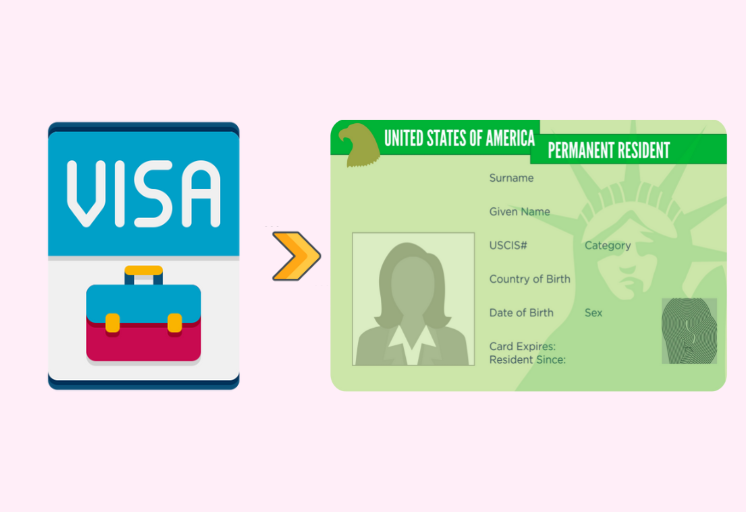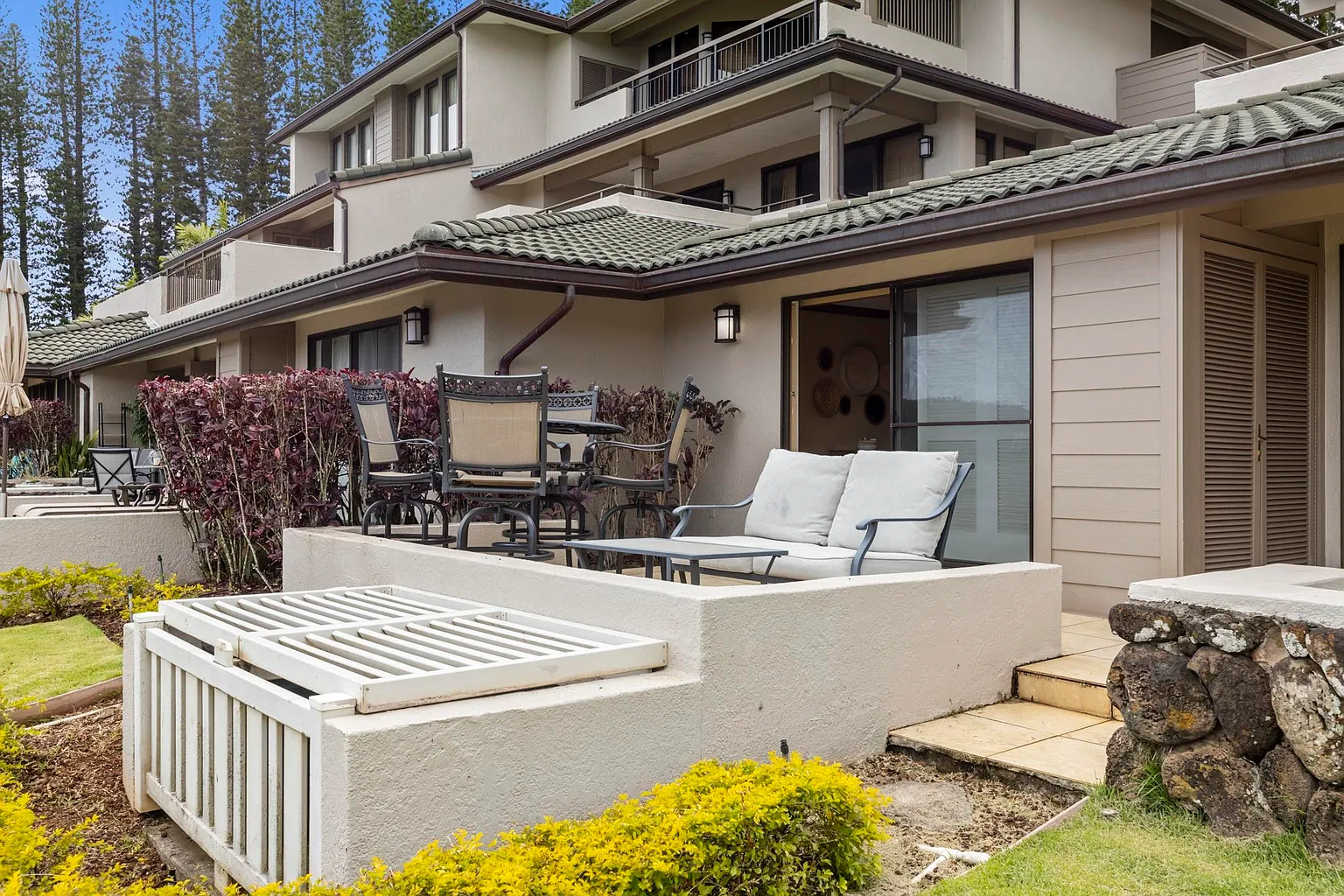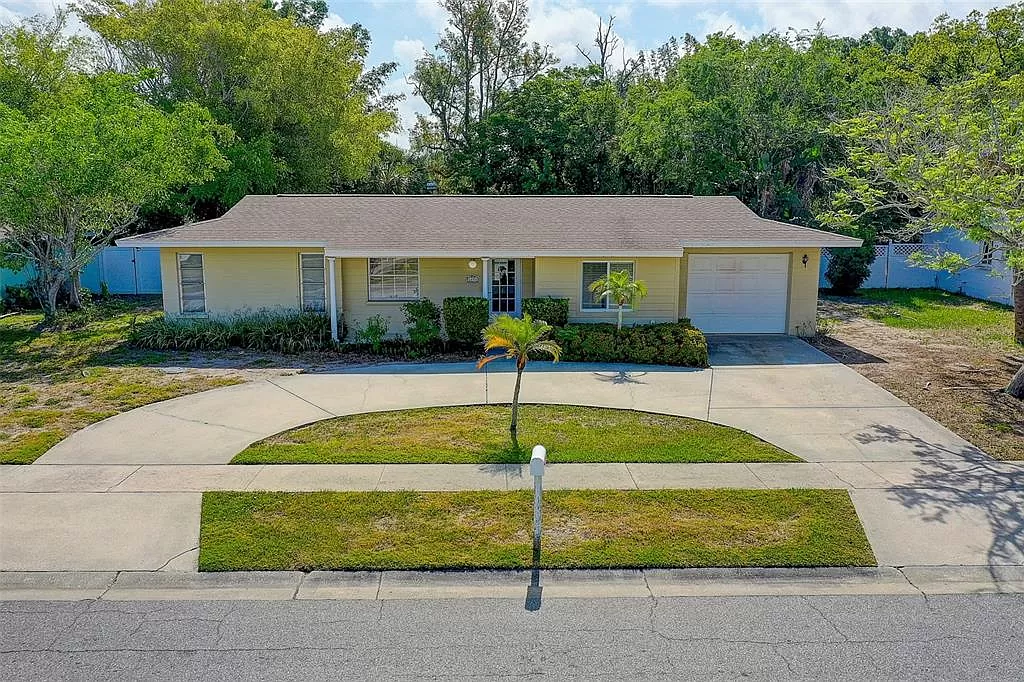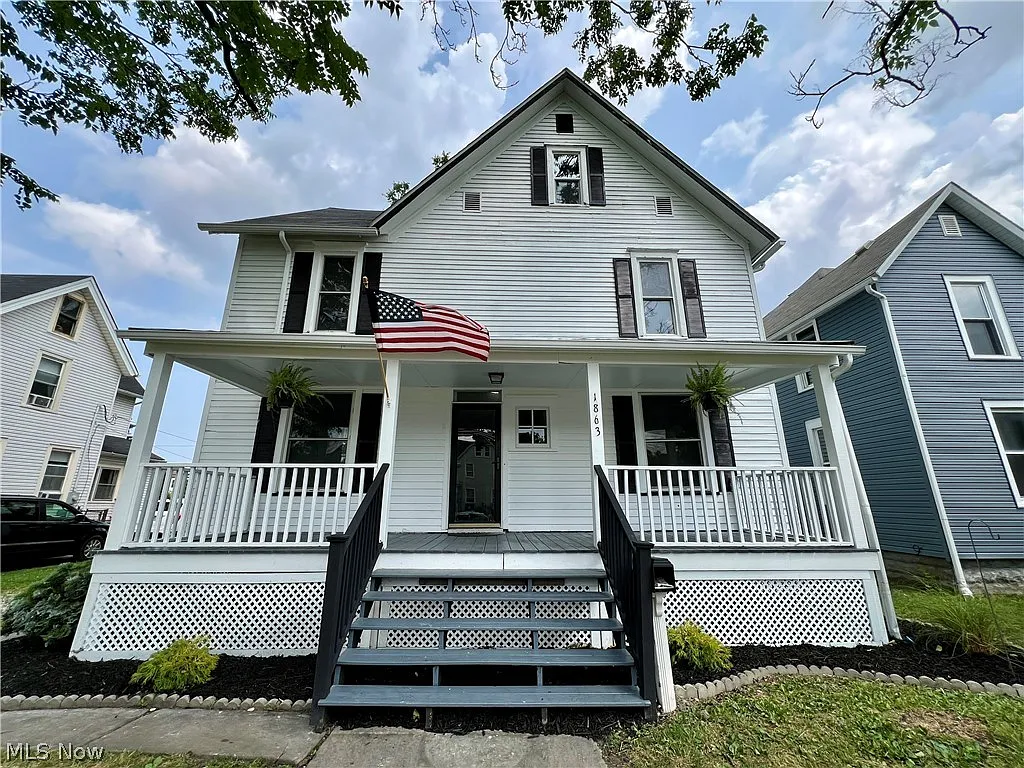Editorial Integrity
Making informed real estate decisions starts with having the right knowledge. At HomeAbroad, we offer US mortgage products for foreign nationals & investors and have a network of 500+ expert HomeAbroad real estate agents to provide the expertise you need. Our content is written by licensed mortgage experts and seasoned real estate agents who share insights from their experience, helping thousands like you. Our strict editorial process ensures you receive reliable and accurate information.
If you’re living in the US on an L1 visa, chances are you’ve wondered at least once, “Should I buy a house here, or keep renting until my visa situation and stay status are more stable?” It’s a common dilemma for many professionals on temporary work visas. After all, buying a home is a big decision; financially, emotionally, and logistically.
But here’s the thing: owning a home in the US while on an L1 visa isn’t just possible, it can actually be a wise and profitable move. Whether you’re planning to stay long-term or want to make a sound investment during your time in the US, buying property can offer financial benefits, tax advantages, and a sense of stability for you and your family.
In this article, we’ll break down the Top 10 reasons to consider buying a home on an L1 visa, plus a few critical risks and considerations, so you can make an informed choice that fits your budget, lifestyle, and goals.
Key Takeaways: 1. You can legally buy property in the US on an L1 visa, as your visa status doesn’t impose any limitations on buying or investing in US real estate. 2. Buying a home can help you build wealth over time through appreciation, equity, and even potential rental income compared to spending hefty amounts on renting. 3. Understanding your visa timeline and having an exit plan before making a real estate investment is key before making a purchase. Might sound complicated, but HomeAbroad makes the entire process stress-free and straightforward. As a one-stop shop for international real estate investors, HomeAbroad helps you find the perfect property through our AI-driven investment property search platform, get tailored foreign national mortgages, set up a US-based LLC, open a US bank account, and handle all the paperwork, all in one place.
Table of Contents
Home Ownership on Residency Status
One thing to keep in mind is that one’s residency status has a significant impact on the requirements for obtaining a home loan. The majority of debtors typically belong to one of the following categories:
- Green card holders who are residents for life (Form I-551)
- Non-permanent occupants who possess a working visa (E1, E2, H1B, H2A, H2B, H3, L1, and G1-G4)
- “Foreign nationals” who don’t live in the United States on a regular basis.
In general, if you fit into one of the first two groups, getting a home loan is simpler. That’s because mortgage behemoths Fannie Mae and Freddie Mac, which purchase the majority of mortgages on the secondary market, have policies that are essentially the same for people with work permits and green cards as for everyone else.
The lender must confirm the applicant’s legal residency, which is the key restriction. However, because foreign nationals don’t meet Fannie or Freddie’s requirements, global investor mortgages for those on temporary work visas can work wonders for you. This method involves the lender taking on more risk. Therefore, a sizable down payment and a high interest rate are more likely to be needed to mitigate the additional risk.
Reasons to Buy A House on L1 Visa (Pros)
While there are a variety of other non-immigrant work visas available, the L-1 visa offers many advantages that make it a desirable option for those who are eligible. Hence, these benefits are a key reason to get a home in the US on an L1 visa!
1. Purchasing a Home can Assist You in Putting Down Roots in the US.
One of the most important purchases you will make in your lifetime is buying a primary residence. It is not only a financial investment, but it also enables you to establish roots in a neighborhood. You feel more secure and like a part of the family when you own home away from your home country.
When you purchase a home, you integrate yourself into the community. Both you and your neighbors become acquainted with one another. If you are new to the country, this sense of community may be very significant.
You can feel more at home in the US if you establish roots in a community. It can give you a support system as you adjust to life in a new country. Moreover, you’ll be able to enjoy an enhanced quality of life in the US.
2. Mortgage Payments on a Monthly Basis may be Less Expensive than Rent.
There are several compelling reasons to invest in a US home. For starters, your mortgage’s monthly payment will probably be less each month than your rent. Compared to other major real estate markets like Canada, the UK, China, etc., house prices in the US are significantly lower. On the other hand, rental yields are high, and rent payments may be higher than mortgage payments. Additionally, even if your EMIs are a little higher, you are building equity in your home with each payment. Finally, having a house of your own might provide you with a sense of security and stability that renting cannot.
3. Compared to Rent Payments, Mortgage Payments are Less Likely to Change.
A mortgage is a type of financing used to buy real estate. Typically, the monthly payments are fixed, so they won’t change. As a result, homeowners will have peace of mind knowing how much their monthly mortgage payment will be. In contrast, depending on the lease arrangement, rent payments can frequently change. Renters may find it challenging to organize their finances as a result. Renting instead of buying a home while on an L1 visa is, therefore, the better option.
4. You may be Able to Deduct Mortgage Interest and Property Taxes When you File your Taxes.
If you itemize your deductions, you may be able to deduct your mortgage interest and property taxes when you file your US federal income tax return. The amount of money you save on your taxes can help offset the cost of ownership. You should, however, consult with a tax advisor to see if you are eligible for this deduction.
5. Housing Costs are Reasonable in the US.
Compared to other nations, US home prices are extremely reasonable. The average cost of a property in the US is about $200,000, whereas it costs over $1 million in London. For families searching for a home that is both reasonable and pleasant, this makes the US a perfect area to buy a house.
6. If your Credit Score is High, You Can Get a Loan with a Reduced Interest Rate.
You may qualify for a loan with a cheaper interest rate if you have a high US credit score. This is due to the fact that lenders consider borrowers with established credit ratings to be less risky. They are more likely to make timely, full loan repayments. Due to the lender’s ability to offer them a reduced interest rate, you may be able to save money. So, if you have an established solid US credit score, you can simply obtain a mortgage loan to purchase your home and an asset that will appreciate in value.
L1 Visa Mortgage with no US Credit Histroy
But given the higher likelihood that you don’t have a US credit history, especially if you just arrived in the US and are looking to establish your roots, investing in US real estate must be your top choice. But no worries; no matter your credit score, you can still get a mortgage on an L1 visa for your home with HomeAbroad’s tailored foreign national mortgages.

Pre-qualify for a US mortgage as an international buyer.
No US credit history needed.
7. Increase your Home’s Equity.
You might be able to use your home as collateral for a loan if it is yours. This implies that the lender may seize your home if you default on the loan. On the other hand, you can increase your home’s equity if you make all of your payments on time. Equity, which is the difference between your home’s market worth and the sum you still owe on your mortgage, is the piece of your house that you truly own. Future loans that you obtain may have cheaper interest rates and better terms if you use this equity as collateral.
8. You Can Make Changes to your House.
You may be able to change the physical appearance of your house to better suit your needs if you own it. For example, you might want to paint the walls or add a new bathroom. If you are renting, on the other hand, you will need to get permission from your landlord before making any changes. They may also charge you a fee for doing so.
9. A Certain Method for L1 Visa Holders to Increase Their Wealth.
Purchasing a home remains one of the most effective ways for L1 visa holders to build long-term wealth in the US. Over time, property values generally appreciate due to market demand, inflation, and improvements to the home. When you decide to sell, you can often earn a profit if your property’s value has risen since your purchase, as investing in US real estate is considered an appreciating asset.
According to data from the US Census Bureau and the US Department of Housing and Urban Development (HUD), the median sales price of new houses sold in the US was $413,500 as of August 2025, up substantially from $306,000 in July 2016, an increase of about 35 percent over nine years.
Similarly, the Federal Reserve Bank of St. Louis reports that the average sales price of all houses sold in Q2 2025 was $512,800, compared to about $360,000 in mid-2016. Based on this trend, if an L1 visa holder had purchased a home for $500,000 in 2016, the property could now be worth around $675,000 to $750,000, depending on location and local market growth, hinting at a steep rise in the profitability of later selling your primary home.
For those holding an L1 visa, now is a strategic time to consider US real estate investment. Beyond the potential for appreciation, homeownership helps build equity, which can be leveraged for future investments or for near-term financial security and stability.
10. Purchasing a Home Can be a Sensible Investment If You Intend to Obtain Green Card in the US.
Owning a house in the United States has several advantages, particularly if you want to stay there for an extended period of time. If you want to obtain a green card, owning a house can give you an advantage over individuals who do not own property. This is because the US government views homeownership as evidence of ties to the United States.
Having a home of your own can also give you security and stability, and it can also be a smart financial investment. Over time, the value of your home can increase, and by reducing your mortgage, you might also create equity. Additionally, house ownership may qualify you for tax benefits that renting does not. Consequently, purchasing a home on your L1 visa is a good move if you intend to become a permanent resident of the US.
Make sure to consult with a professional before making any decisions. Ultimately, the decision of whether or not to buy a house in the US while on an L1 visa is a personal one. You’ll need to consider your unique circumstances and whether or not ownership makes sense for you.
Cons of Buying a House on L1 Visa
1. You Might Not Have the Necessary Time to Fully Enjoy Your Home.
If you are transferred back to your country or need to leave the United States for any other reason, you may not have the opportunity to enjoy your home as much as you would like. You also run the risk of being unable to sell your property quickly if you need to return home suddenly.
To avoid problems, a collateral plan should be prepared, in which case, you may construct a roadmap detailing how the property would be handled if an emergency arises. For example, you may ask a friend or family member to take over the mortgage payments or sell the house and split the proceeds with them. Renting out the home is another option; you might also sell it or allow friends and relatives to use it.
2. You Might have Difficulty Qualifying for a Mortgage.
Mortgages can be difficult to obtain, even for US citizens. As an L1 visa holder, you may have an even harder time qualifying for a loan. This is because lenders view you as a higher risk since you are not a permanent resident of the United States. You may need a larger down payment, a co-signer, or a higher credit score to qualify for a loan.
But this doesn’t remain a hindrance to your first purchase, as HomeAbroad offers tailored foreign national loans to L1 visa holders, even if you are a newcomer to the US with no US Credit History.
3. Job Loss Can Affect Your Loan Repayment
The risk of losing one’s employment when purchasing a home on an L1 is one of the most significant drawbacks. If you were to lose your job, you’d have to deal with both finding a new position and paying off your mortgage.
If you want to keep your home but are having trouble making the mortgage, you may ask your lender for a longer loan term, which will bring down your monthly payment.
4. Difficulty in Managing Property Remotely
It can be not easy to manage your property remotely if you are not in the United States. If you are not able to be on-site to manage repairs, renovations, or other issues that may arise.
However, a property management company will handle all the details of your property, from finding tenants to handling repairs. Like, we at HomeAbroad solve all your problems by providing property management services for foreign nationals and coordinating with local managers for daily operations, including rent collection, maintenance, and tenant placement. Our services aim to provide end-to-end support for long-distance landlords who need assistance managing their real estate investments, covering everything from tenant communication to emergency repairs.
Can You Get a Mortgage Loan on L1 Visa?
Yes, you can get a mortgage loan on an L1 visa. You may be able to get a loan from a traditional lender, such as a bank, or you may need to go through a foreign national mortgage lender. The process and requirements will vary depending on the type of lender you choose.
The US mortgage industry is constantly changing, making it hard for international buyers to obtain a loan. However, if you are looking to purchase a property in the near future, you should start investigating your mortgage options. There are a few ways to qualify for a loan as an L1 visa holder.
When applying for a mortgage loan on an L-1 visa, you will likely need to provide documentation proving your employment status and income. You may also be required to have a higher interest rate and down payment than those who are applying for a loan with a green card or US citizenship. However, the requirements will vary depending on the lender you choose.
It is essential to shop around and compare different lenders when you are looking for a mortgage loan on an L1 visa. Be sure to compare interest rates, fees, and terms and conditions before you decide on a loan.
But choosing us gives you an edge for seamless US investment. HomeAbroad is a one-stop PropTech and FinTech platform dedicated to simplifying US real estate for global investors and US newcomers. We understand the unique challenges foreign nationals face on temporary work visas, from securing financing without a US credit history to navigating property laws and ownership structures. That’s why we’ve built a platform that brings everything together in one place.
With tailored foreign national mortgages that don't require an established US credit score, an AI-driven investment property search platform, and a network of over 500 expert real estate agents, HomeAbroad makes it easier to find the right property that fits your investment needs and budget. Beyond property search and financing, our concierge services guide you through every step, from setting up an LLC and opening a US bank account to securing insurance and coordinating property management.

Pre-qualify for a US mortgage as an international buyer.
No US credit history needed.
Is It Worth Buying a House on an L1 Visa?
If you plan to stay in the United States for an extended period, purchasing property may be a good investment. Not only will you have a place to live, but you will also build equity in the property. Aside from that, the value of your home will only rise over time. Even if you must return to your home country, you’ll retain ownership of the house and may earn rental income or sell it.
It is essential to weigh the pros and cons of buying a property on an L1 visa before making a decision. If you have made up your mind to buy a house on an L1 visa, then HomeAbroad connects you with CIPS-certified real estate agents, lenders, and other resources to help you with hassle-free purchases.
Our mission is simple: to empower international buyers with the tools, expertise, and support they need to invest in US real estate with ease and confidence. With HomeAbroad, you’re not just buying property; you’re gaining a trusted partner for your US real estate investment journey. Apply for HomeAbroad’s foreign national mortgage and get started today.
Frequently Asked Questions
What is the Minimum Credit Score Required to Obtain a Mortgage on an L1 Visa?
Your credit report is one of the most critical factors in determining whether or not you will be approved for a mortgage. Generally, you will need a credit score of 620 or higher to qualify for a conventional mortgage.
But at HomeAbroad, you can avail of foreign national mortgages with limited US credit history, making homeownership more accessible for L1 visa holders.
What is the Process of Buying a House on an L1 Visa?
The process of buying a house on an L-1 visa is similar to that of a US citizen. You will need to find a real estate agent, get pre-approved for a mortgage loan, and search for homes that fit your budget and needs.
One of the most significant differences when buying a house on an L1 visa is that you will need to provide additional documentation to prove that you have the funds to purchase the property. This may include bank statements, tax returns, and other financial documents.
HomeAbroad is the best place to start your search for a home abroad. We offer a wide range of services, from helping you find the perfect property to assisting with financing and closing. Contact us today to get started!
Can I buy a home in the US while on an L‑1 visa?
Foreign nationals, including L‑1 visa holders, can purchase property in the US without any restrictions. HomeAbroad helps international buyers and US newcomers navigate the entire investment process smoothly, even with limited or no US credit history.
What are the financial benefits of buying over renting on an L‑1 visa?
Buying allows you to build equity over time, potentially benefit from property appreciation, and lock in a mortgage payment rather than pay increasing rent. Along with these financial benefits, you also get a sense of stability and security as you set foot into the US.
What happens if my L1 visa tenure ends or I return to my home country?
Even if your visa ends or you return home, you can continue owning and managing your US property with HomeAbroad. Rent it out to earn continuous rental income or hold it to sell later at a higher price. HomeAbroad handles tenants, maintenance, rent collection, and legal compliance, so you can manage everything remotely without being physically present in the US.
At HomeAbroad, we ensure the reliability of our content by relying on primary sources such as government data, industry reports, firsthand accounts from our network of experts, and interviews with specialists. We also incorporate original research from respected publishers when relevant. Discover more about our commitment to delivering precise and impartial information in our editorial policy.
US Census Bureau and the US Department of Housing and Urban Development (HUD): Median Sales Price for New Houses Sold in the United States
Federal Reserve Bank of St. Louis: Average Sales Price of Houses Sold for the United States























